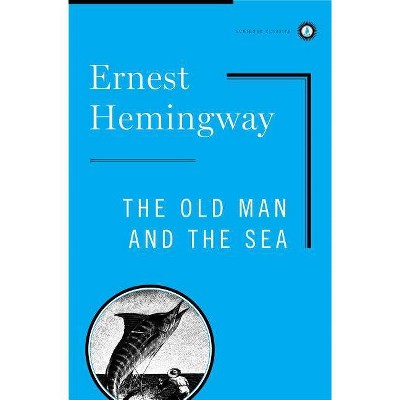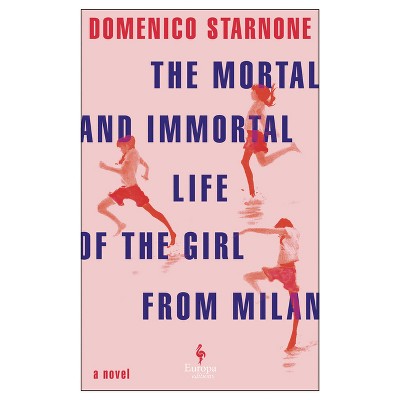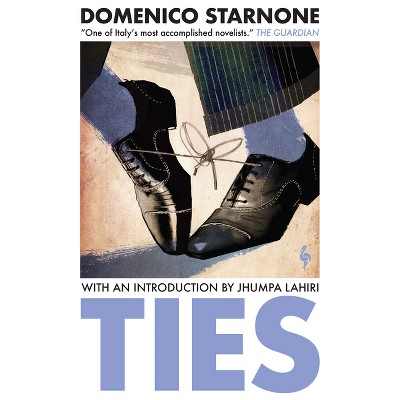Sponsored

The Old Man by the Sea - by Domenico Starnone (Paperback)
In Stock
Sponsored
About this item
Highlights
- From the author of Ties and The House on Via Gemito ★ "Starnone's sensitivity, nuance, and subtlety are wonderful to behold.
- Author(s): Domenico Starnone
- 160 Pages
- Fiction + Literature Genres, Psychological
Description
Book Synopsis
From the author of Ties and The House on Via Gemito
★ "Starnone's sensitivity, nuance, and subtlety are wonderful to behold."--Kirkus Reviews (starred review)
Domenico Starnone's The Old Man by the Sea is a slim masterpiece of a novel about an 82-year-old Neapolitan man, Nicola, who has spent his entire life telling stories, becoming very, very good at it. In words, with his pen, in the notebook he carries with him everywhere, he records life's minutiae, its ephemera, those vibrating essences and almost imperceptible atoms of existence that most of us barely notice but that constitute the very stuff of life. Yes, recording the universe in each grain of sand has become second nature to Nicola. But of course, there is always something that escapes. Something unnamable that resists, remaining on the margins, slithering away, a movement intuited rather than identified. And this fact, for Nicola, is a source of deep anxiety and a growing sense of failure.
Now, ensconced in a house on the dunes south of Rome, Nicola spends his mornings writing, watching the waves, and observing Lu, a store clerk in her twenties whose graceful canoeing stirs faint echoes of his mother--a glamorous, headstrong woman who defied convention with her beauty and creativity. As Nicola reflects on the women who shaped him and the passions he has never outgrown, he finds himself drawn into the nefarious intrigues of the small seaside town and its inhabitants. He will end by embarking on an improbable and ill-advised kayak adventure of his own with Lu's young son, as Starnone himself brings this slim, virtuoso novel about eros and melancholy, memory and reinvention, age and imagination, to an unexpected conclusion.
Review Quotes
Praise for The Old Man by the Sea
★ "Throughout the book (beautifully translated by Stransky), Starnone's sensitivity, nuance, and subtlety are wonderful to behold--but he doesn't seem to take himself too seriously, either. Page after page is imbued, alongside everything else, with an achingly sweet humor. A deceptively simple work and an exquisite addition to Starnone's oeuvre."--Kirkus Reviews (starred review)
"Reality and projection meld to intriguing effect in the Italian writer Domenico Starnone's The Old Man by the Sea... Mr. Starnone creates a tantalizingly unreliable narration."--Sam Sacks, Wall Street Journal
"In this smoldering mood piece from Starnone, an 82-year-old accomplished author persists in his life's work despite his physical and mental decline...The result is an evocative glimpse into a man's inner world."--Publishers Weekly
"A slim, quietly reflective volume that evokes Ernest Hemingway's similarly titled classic, only with a heftier serving of sweetness and self-deprecating humor."--NPR
"A short gem of a novel... Starnone is a master at weaving a concise narrative that deftly deals with big topics: life, love, memory, family, the past. The Old Man by the Sea, despite its short length, packs an emotional punch."--Under the Radar
"Every new book by Starnone is something to celebrate."--la Repubblica
"This is a book about the sea and a book about writing, about what's left to be written when one has spent a lifetime writing--what has slipped away, what one has fled from." --La Stampa
"What Starnone describes with such moving effectiveness is a startling catastrophe: in Nicola's mind, the past overflows into the present, like water leaking from a broken pipe. Filled with sweetness and melancholy, yet also as demanding as remorse, a mother's ghost descends into the seascape, playfully clinging to every appearance, eventually permeating them with her absence."--Corriere della Sera
Praise for The Mortal and Immortal Life of the Girl from Milan
"At the heart of this novel is the dichotomy between idealized eternal love, as in the Greek myth, and the real, embodied, mortal kind. Through it all, Starnone's prose is charming, witty, and intellectual."--Booklist
"Full of beauty and insight, Starnone's narrative contrasts youth and old age, education and natural wisdom, dreams and reality. This won't be easily forgotten."--Publishers Weekly
"Domenico Starnone's gift to shuffle and deal the cards of a story gets ever more impressive."--La Stampa
"Faultless... The reflection on love, already undertaken in Ties, Trick and Trust, is resumed and refined."--Reading in Translation
Praise for The House on Via Gemito
"Starnone...succeeds beautifully in exploiting Federì's self-contradictions and the unreliability of memory to create what is both a complex family narrative and a masterpiece on the elusive nature of truth."--Christopher Sorrentino, The New York Times on The House on Via Gemito
"Starnone is a writer exquisitely attuned to class anxieties: As his later novels do, Via Gemito explores the emotional cost of class mobility, and the psychic toll of changing one's speech patterns and behavior for the sake of social and financial gain...In Starnone's novels, releasing yourself from whatever bitterness consumed your parents is an ultimately futile pursuit."--Idra Novey, The Atlantic
"A vivid, fluid, richly detailed drama, tormented and hilarious."--Tim Parks, The Washington Post
"[The House on Via Gemito] presents a vivid rainbow of sediments: a boy's initiations, with every antenna trembling, tuning in secrets of both family and neighborhood; and an evisceration of the creative life, exposing both how the world crushes its artists and how artists sabotage their own efforts; and all this erupts like Naples in full cry."--John Domini, The Brooklyn Rail
"The House On Via Gemito is an exuberant portrait of the writer as a young (and then middle-aged) man, and an allegory of the role of the artist, adrift in the Sargasso of modernity."--Hamilton Cain, On the Seawall
Praise for Trust
"A short, sharp novel that cuts like a scalpel to the core of its characters... Starnone has earned a reader's trust with another agile analysis of frail humanity."--Los Angeles Times
"Translation shows me how to work with new words, how to experiment with new styles and forms, how to take greater risks, how to structure and layer my sentences in different ways."--Jhumpa Lahiri on the joy of translation as discovery, Lit Hub
"A sweeping examination of aging, love, and success... This is the third of Starnone's novels that Lahiri has translated over the last six years, and her deft hand seamlessly reveals Starnone's masterful narrative at every turn."--Booklist
"Starnone (Trick) returns with an elegant story of a man's lifelong struggle to perfect his public persona while hiding a secret."--Publishers Weekly
Shipping details
Return details
Guests also viewed

















